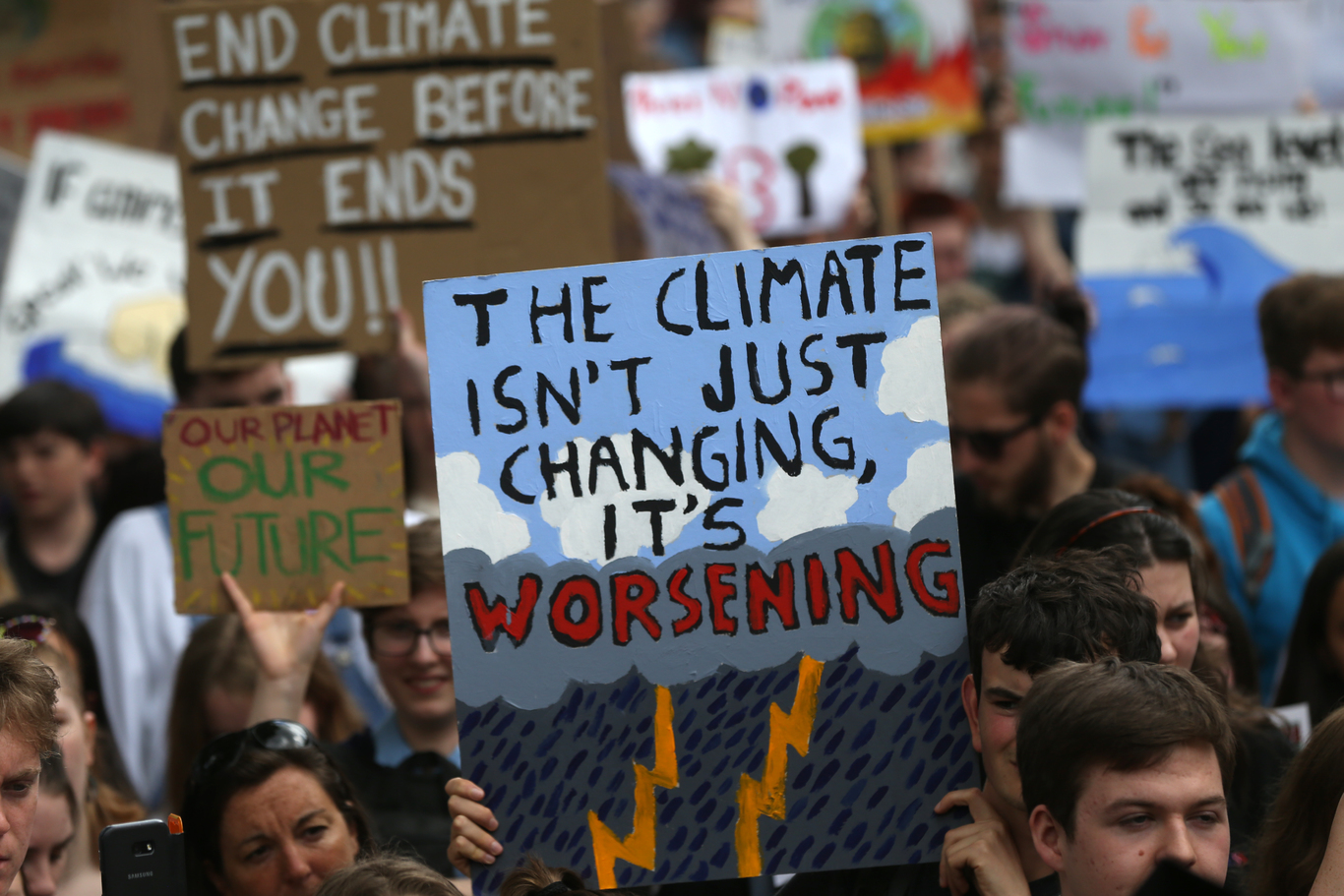Becoming a low-carbon economy is a matter of survival - Ireland needs to do more
A sustainable low carbon economy goes beyond cars and heating.
MAKING THE TRANSITION to a low-carbon economy is steadily becoming a matter of survival for all economies globally.
At a minimum, this challenge requires the Irish economy to fully decarbonise heat and transport.
This means that we’ll need to prioritise the generation and distribution of renewable energy, set high standards for new buildings, retrofit existing buildings and ensure that there are sustainable low-carbon options of transport available all over the country.
But a low-carbon sustainable economy goes beyond cars and heating.
It also relates to the day-to-day operations of how we run our homes and businesses, namely in how we package products, use materials and what we do with these products when we’re finished with them.
The circular economy
In recent decades, increased consumption has led to increased waste, much of which ends up in landfill. This is having a hugely damaging impact on the environment.
The World Bank predicts that if action on waste is not taken, waste could grow by 70% by 2050, jumping from 2 billion tonnes in 2016, to 3.4 billion tonnes in the next 30 years.
In response to this, the European Commission has adopted the Circular Economy Package in 2019, calling on the business community to introduce a more circular model into its operations.
A circular business model requires that waste should be minimised and materials should be maintained in the economy for as long as possible.
As part of this package, the EU also introduced the directive on single-use plastics, which will come into force in 2021. From that point on, businesses will be expected to eradicate single-use plastics from their supply chains and operations.
To implement the EU’s targets, the government’s newly published Climate Action Plan includes ambitious commitments, including the introduction of new laws to reduce waste in the economy.
Ireland is one of the top producers of plastic waste in the EU, generating an average of 61kg per person every year, making the introduction of a legal commitment to eradicate single use plastics critical if we are to reduce waste and protect the environment.
Preparing for change
While lots of businesses have already begun to adapt their supply chains and now offer environmentally friendly products, such as compostable cups and refillable cleaning products, many other businesses, especially SMEs, often struggle to know where to start.
Those who are not prepared for these new regulations will struggle to adapt and this could have major financial implications.
Organisations like ourselves and our network of chambers have a role to play in supporting our members to make these changes.
However, the State must also play a big part in designing national strategies, providing funding and introducing locally accessible resources for businesses all over the county as well as adopting the strategies in State bodies.
How we prepare business for these changes is a central part of our Budget 2020 recommendations and we’re calling on the government to immediately ring-fence existing income from carbon tax, along with all future increases, and invest this revenue into sustainable transport, renewable energy and supports for the business community to provide the leadership required.
For example, one such idea would be to broaden existing funding calls to target a wider range of businesses.
The recent Green Enterprise fund of €600,000 is directed at innovators who develop and demonstrate consumer and business solutions that will stimulate the circular economy.
Incentives
While initiatives like these are extremely welcome, we also need to see more financial support and guidance for ordinary businesses which want to move to a more sustainable model.
In order to incentivise both businesses and consumers to recycle and become more conscious of waste reduction, we are calling on the government to introduce a recycling deposit system in Ireland, much like initiatives already operating in more than 38 other countries.
The circular economy isn’t only about regulation. There are also many opportunities for business.
According to estimates, roughly 5,000 new jobs could be created in the circular economy nationally in Ireland. There is also potential for a whole new range of jobs to be created from recycling, to construction to eco-design.
However, we’ll only be able to fill these jobs if we have a national training strategy, that includes apprenticeships for new school-leaver and training programmes to re-skill workers from more carbon-intensive professions.
In the many responses we’re seeing globally to addressing climate change and managing waste, it is the business community that is innovating to meet these challenges.
But not all businesses are innovators. If we’re to keep the wider economy competitive and support SMEs in particular, let’s use Budget 2020 to introduce the right supports and funding, so that we in Ireland can led the way in becoming a more competitive, sustainable economy.
Ian Talbot is chief executive of Chambers Ireland.
Get our Daily Briefing with the morning’s most important headlines for innovative Irish businesses.






